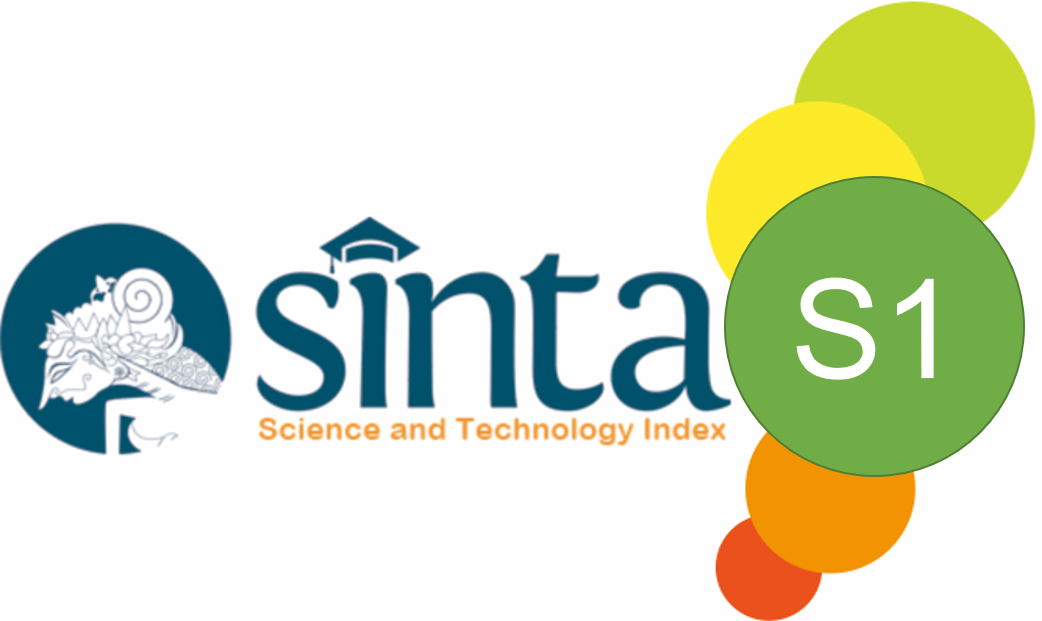Meta-analysis of Student Performance Assessment Using Fuzzy Logic
Abstract
The assessment system generally requires transparency and objectivity to assess student performance in terms of abstraction. Fuzzy logic method has been used as one of the best methods to reduce this uncertainty. Therefore, we have conducted a literature review to examine the application of fuzzy logic in assessing the performance of different students. The Preferred Reporting Items for the Systematics Review and Meta-Analysis Method (PRISMA) were used as the basic method for conducting systematic reviews and meta-analyses. The articles reviewed were 38 articles from 2008 until 2018. All articles were classified based on the author, year of publication, type of journal or conference, sample size, context, data type, fuzzy technique, and basic findings. The results of this review show the positive effects of using fuzzy logic on student performance assessment. Overall, this review provides an appropriate reference for further research by identifying research needs in aspects of student performance assessment.
Keywords
Full Text:
PDFReferences
Ahmadi, H., Gholamzadeh, M., Shahmoradi, L., Nilashi, M., & Rashvand, P. (2018). Diseases diagno-sis using fuzzy logic methods: A systematic and meta-analysis review. Computer Methods and Programs in Biomedicine, 161, 145-172.
Almohammadi, K., & Hagras, H. (2013). An adaptive fuzzy logic-based system for improved knowledge delivery within intelligent E-Learning platforms. In 2013 IEEE International Con-ference on Fuzzy Systems (FUZZ-IEEE) (pp. 1-8).
Arguedas, M., Xhafa, F., Casillas, L., Daradoumis, T., Peña, A., & Caballé, S. (2018). A model for providing emotion awareness and feedback using fuzzy logic in online learning. Soft Com-puting, 22(3), 963-977.
Arora, N., & Saini, J. R. (2013). A fuzzy probabilistic neural network for student’s academic perfor-mance prediction. International Journal of Innovative Research in Science, Engineering and Technology, 2(9), 4425-4432.
Baba, A. F., Cin, F. M., & Bakanay, D. (2012). A fuzzy system for evaluating students' project in en-gineering education. Computer Applications in Engineering Education, 20(2), 287-294.
Barlybayev, A., Sharipbay, A., Ulyukova, G., Sabyrov, T., & Kuzenbayev, B. (2016). Student's per-formance evaluation by fuzzy logic. Procedia Computer Science, 102, 98-105.
Bhatt, R., & Bhatt, D. (2011). Fuzzy logic-based student performance evaluation model for practical components of engineering institutions subjects. International Journal of Technology and Engineering Education, 8(1), 1-7.
Borkar, S., & Rajeswari, K. (2013). Predicting students academic performance using education data mining. International Journal of Computer Science and Mobile Computing, 2(7), 273-279.
Chrysafiadi, K., & Virvou, M. (2012). Evaluating the integration of fuzzy logic into the student model of a web-based learning environment. Expert Systems with Applications, 39(18), 13127-13134.
Darwish, S. M. (2016). Uncertain measurement for student performance evaluation based on se-lection of boosted fuzzy rules. IET Science, Measurement & Technology, 11(2), 213-219.
Daud W S W, Aziz K A A and Sakib E (2011). An evaluation of students’ performance in oral presentation using fuzzy approach. Organization, 5, 70-73.
Deborah, L. J., Sathiyaseelan, R., Audithan, S., & Vijayakumar, P. (2015). Fuzzy-logic based learning style prediction in e-learning using web interface information. Sadhana, 40(2), 379-394.
Dias, S. B., & Diniz, J. A. (2013). FuzzyQoI Model: A fuzzy logic-based modelling of users' quality of interaction with a learning management system under blended learning. Computers & Edu-cation, 69, 38-59.
Do, Q. H., & Chen, J. F. (2013). A neuro-fuzzy approach in the classification of students' academic performance. Computational intelligence and neuroscience, 6. 67-76.
Gokmen, G., Akinci, T. Ç., Tektaş, M., Onat, N., Kocyigit, G., & Tektaş, N. (2010). Evaluation of stu-dent performance in laboratory applications using fuzzy logic. Procedia-Social and Behav-ioral Sciences, 2(2), 902-909.
Gopalakrishnan, S., & Ganeshkumar, P. (2013). Systematic reviews and meta-analysis: understand-ing the best evidence in primary healthcare. Journal of family medicine and primary care, 2(1), 9.
Henriques, P. L., Matos, P. V., Jerónimo, H. M., Mosquera, P., da Silva, F. P., & Bacalhau, J. (2018). University or polytechnic? A fuzzy-set approach of prospective students' choice and its im-plications for higher education institutions' managers. Journal of Business Research, 89, 435-441.
Herrera-Viedma, E., López-Herrera, A. G., Alonso, S., Moreno, J. M., Cabrerizo, F. J., & Porcel, C. (2009). A computer-supported learning system to help teachers to teach fuzzy information retrieval systems. Information Retrieval, 12(2), 179-200.
Hidayah, I., Permanasari, A. E., & Ratwastuti, N. (2013). Student classification for academic perfor-mance prediction using neuro fuzzy in a conventional classroom. International Conference on Information Technology and Electrical Engineering, 1, 221-225
Hutton, B., Catala-Lopez, F., & Moher, D. (2016). The PRISMA statement extension for systematic reviews incorporating network meta-analysis: PRISMA-NMA. Med Clin (Barc), 147(6), 262-266.
Ingoley, S., & Bakal, J. W. (2012). Use of fuzzy logic in evaluating students’ learning achievement. International Journal on Advanced Computer Engineering and Communication Technology (IJACECT), 1(2), 47-54.
Inyang, U. G., & Joshua, E. E. (2013). Fuzzy clustering of students' data repository for at-risks stu-dents identification and monitoring. Computer and Information Science, 6(4), 37.
Jafari, M., & Khotanlou, H. (2013). A routing algorithm based an ant colony, local search and Fuzzy inference to improve energy consumption in wireless sensor networks. International Jour-nal of Electrical and Computer Engineering, 3(5), 640-650.
Jamali, R., & Sayyadi Tooranloo, H. (2009). Prioritizing academic library service quality indicators us-ing fuzzy approach: Case study: libraries of Ferdowsi University. Library Management, 30, 319-333.
Johanyák, Z. C. (2010). Survey on five fuzzy inference-based student evaluation methods. Compu-tational Intelligence in Engineering, 1, 219-228.
Kabra, R. R., & Bichkar, R. S. (2011). Performance prediction of engineering students using decision trees. International Journal of computer applications, 36(11), 8-12.
Kusumadewi, S., & Purnomo, H. (2010). Fuzzy Logic Applications for Decision Support. Graha Sci-ence, Yogyakarta.
Machado, M. A. S., Moreira, T. D. R. G., Gomes, L. F. A. M., Caldeira, A. M., & Santos, D. J. (2016). A fuzzy logic application in virtual education. Procedia Computer Science, 91, 19-26.
Moher, D., Liberati, A., Tetzlaff, J., Altman, D. G., & Prisma Group. (2009). Preferred reporting items for systematic reviews and meta-analyses: the PRISMA statement. PLoS medicine, 6(7), e1000097.
Moher, D., Liberati, A., Tetzlaff, J., & Altman, D. G. (2010). Preferred reporting items for systematic reviews and meta-analyses: the PRISMA statement. Annals of internal medicine, 151(4),264-269
Moher, D., Shamseer, L., Clarke, M., Ghersi, D., Liberati, A., Petticrew, M., & Stewart, L. A. (2015). Preferred reporting items for systematic review and meta-analysis protocols (PRISMA-P) 2015 statement. Systematic reviews, 4(1),1.
Owais, M. A. (2009, August). Subjective decision-making using type-2 fuzzy logic advisor. Interna-tional Conference on Information and Communication Technologies, 1, 127-133.
Oyelade, O. J., Oladipupo, O. O., & Obagbuwa, I. C. (2010). Application of k Means Clustering algo-rithm for prediction of Students Academic Performance. arXiv preprint arXiv:1002.2425.
Ozdemir, O., & Tekin, A. (2016). Evaluation of the presentation skills of the pre-service teachers via fuzzy logic. Computers in Human Behavior, 61, 288-299.
Patil, S., Mulla, A., & Mudholkar, R. R. (2012). Best Student Award—A fuzzy Evaluation Approach. International Journal of Computer Science and Communication, 3(1), 9-12.
Pöysä-Tarhonen, J., Elen, J., & Tarhonen, P. (2016). Student teams’ development over time: Trac-ing the relationship between the quality of communication and teams’ performance. High-er Education Research & Development, 35(4), 787-799.
Prokhorov, S., & Kulikovskikh, I. (2015). Fuzzy learning performance assessment based on decision making under internal uncertainty. Computer Science and Electronic Engineering Confer-ence, 7, 65-70.
Ressing, M., Blettner, M., & Klug, S. J. (2009). Systematic literature reviews and meta-analyses: part 6 of a series on evaluation of scientific publications. Deutsches ärzteblatt international, 106(27), 456.
Rusli, N. M., Ibrahim, Z., & Janor, R. M. (2008). Predicting students’ academic achievement: Com-parison between logistic regression, artificial neural network, and Neuro-fuzzy. Interna-tional Symposium on Information Technology. 1, 1-6.
Sakthivel, E., Kannan, K. S., & Arumugam, S. (2013). Optimized evaluation of students performanc-es using fuzzy logic. International Journal of Scientific & Engineering Research, 4(9), 1128-1133.
Saleh, I., & Kim, S.I. (2009). A fuzzy system for evaluating students’ learning achievement. Expert Systems with Applications, 36(3), 6236-6243.
Shamseer, L., Moher, D., Clarke, M., Ghersi, D., Liberati, A., Petticrew, M., & Stewart, L. A. (2015). Preferred reporting items for systematic review and meta-analysis protocols (PRISMA-P) 2015: elaboration and explanation. Bmj, 349, g7647.
Sripan, R., & Suksawat, B. (2010). Propose of fuzzy logic-based students' learning assessment. ICCAS, 1, 414-417.
Stewart, L. A., Clarke, M., Rovers, M., Riley, R. D., Simmonds, M., Stewart, G., & Tierney, J. F. (2015). Preferred reporting items for a systematic review and meta-analysis of individual participant data: the PRISMA-IPD statement. Jama, 313(16), 1657-1665.
Vesely, S., Klöckner, C. A., & Dohnal, M. (2016). Predicting recycling behaviour: Comparison of a linear regression model and a fuzzy logic model. Waste management, 49, 530-536.
Voskoglou, M. G. (2012). A fuzzy model for analogical problem solving. arXiv preprint arXiv:1204.6415.
Voskoglou, M. G. (2013). Problem solving, fuzzy logic and computational thinking. Egyptian Com-puter Science Journal, 37(1), 131-145.
Yadav, R. S., & Singh, V. P. (2011). Modeling academic performance evaluation using soft computing techniques: A fuzzy logic approach. International Journal on Computer Science and Engineering, 3(2), 676-686.
Yadav, R. S., Soni, A. K., & Pal, S. (2014). A study of academic performance evaluation using Fuzzy Logic techniques. International Conference on Computing for Sustainable Global Develop-ment, 1, 48-53.
Yildiz, O., Bal, A., & Gulsecen, S. (2013). Improved fuzzy modelling to predict the academic performance of distance education students. The international review of research in open and distributed learning, 14(5),144-165.
Yıldız, Z., & Baba, A. F. (2014). Evaluation of student performance in laboratory applications using fuzzy decision support system model. IEEE Global Engineering Education Conference, 1, 1023-1027.
Zadeh, L. A. (1965). Fuzzy sets. Information and control, 8(3), 338-353.
DOI: https://doi.org/10.17509/ijost.v4i1.15804
Refbacks
- There are currently no refbacks.
Copyright (c) 2019 Indonesian Journal of Science and Technology

This work is licensed under a Creative Commons Attribution-ShareAlike 4.0 International License.
Indonesian Journal of Science and Technology is published by UPI.
View My Stats





















